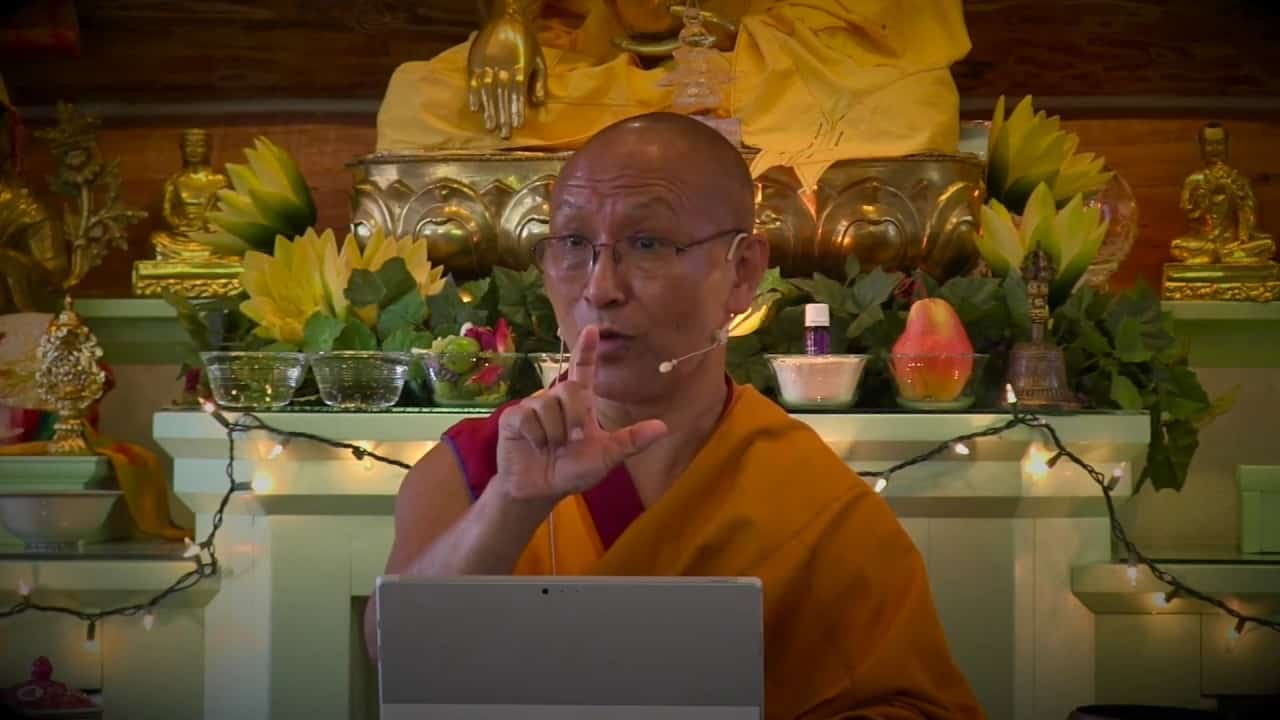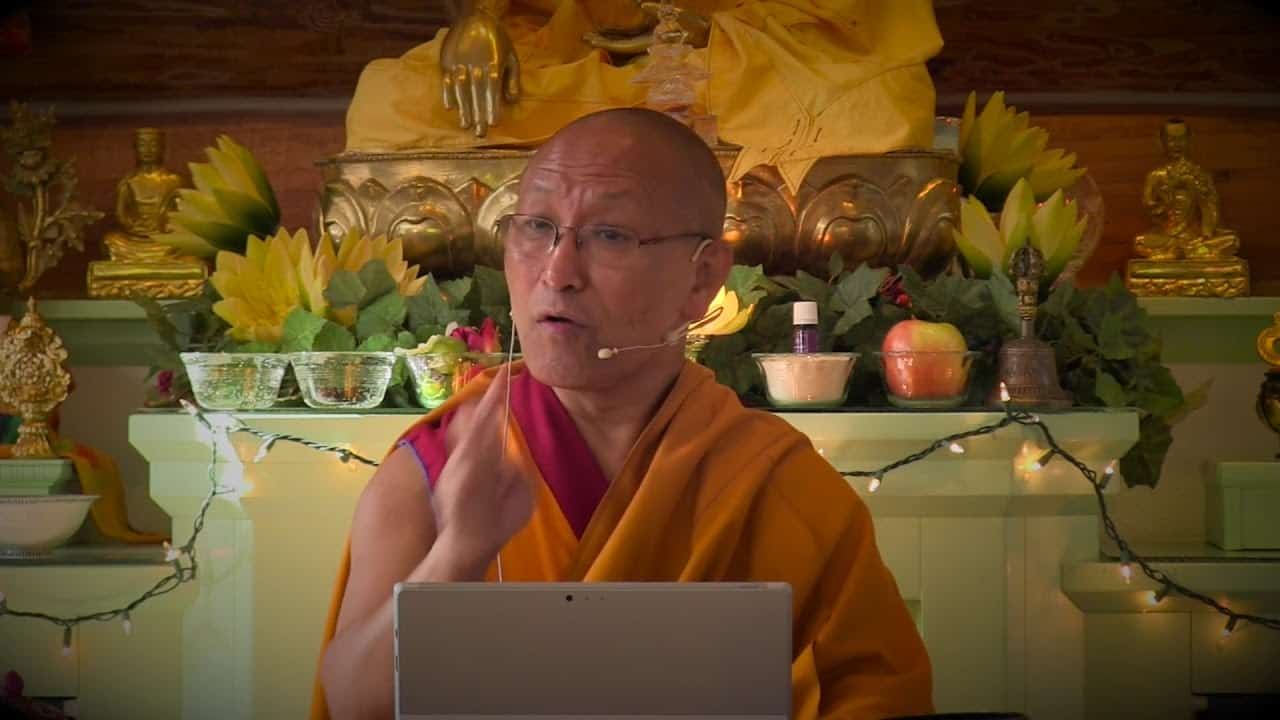Afflictions, mind, and the brain
Part of a series of teachings given during the Madhyamaka through Metaphors retreat with Geshe Dadul Namgyal in 2017. The slides used during this teaching series can be found in PDF format here.
- Have you observed changes in your afflictions from living in the West?
- What is the difference between repulsion and renunciation?
- Does seeing yourself as less important help to relax your mind?
- Does self-hate exist in the Tibetan psyche?
- Is it helpful to think of the cause of suffering as making existence a big deal?
- Summary of the Buddhist view of the mind and brain
- The relationship between consciousness and health
- What is the subtle mind and subtle body?
Geshe Tenzin Chodrak (Dadul Namgyal)
Geshe Tenzin Chodrak (Dadul Namgyal) is a prominent scholar who earned a Geshe Lharampa degree in Buddhism and Philosophy from Drepung Monastic University in 1992. He also holds a Master’s degree in English Literature from Panjab University in Chandigarh, India. Author of several books on Buddhism, Geshe Tenzin Chodrak was also professor of Philosophy at Central Institute of Higher Tibetan Studies in Varanasi, India for seven years. In addition, he has been the Spiritual Director of Losel Shedrup Ling Tibetan Buddhist Center, Knoxville, USA. Due to his facility in both Tibetan and English, he is interpreter and speaker for numerous conferences exploring the interface of Buddhism with modern science, Western philosophy, and psychology and other religious traditions on both a national and international level. Geshela’s language ability has also enabled him to serve as an auxiliary language translator for His Holiness and Dalai Lama throughout the world. As a published author and translator, Geshela’s credits include a Tibetan translation of His Holiness the Dalai Lama’s Power of Compassion, a language manual, Learn English through Tibetan, and a critical work on Tsongkhapa’s Speech of Gold. Geshela lived and worked at Drepung Loseling Monastery in Atlanta, Georgia, where he prepared a six-year curriculum in Modern Science to be used in Tibetan monasteries and nunneries. Geshe Tenzin Chodrak is also on the Sravasti Abbey Advisory Board.


